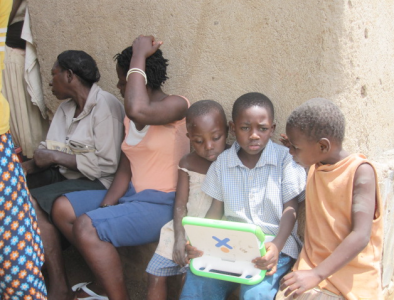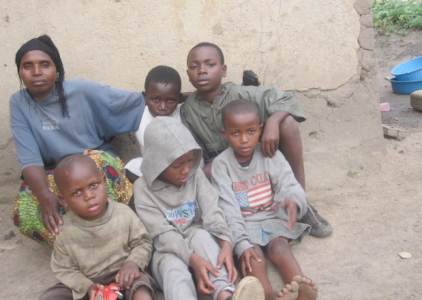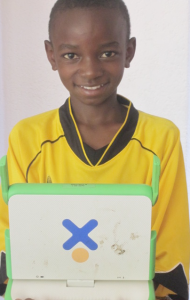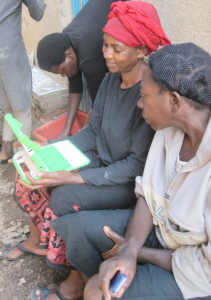Back in May, we held an international Scratch Day event in our office called “Rwandese Kids Scratching their Communities.” This event had local students familiar with Scratch, an interactive programming activity on the XO laptop, planning and holding their own workshop. They taught teachers, family members and anyone else who came how to create Scratch projects.
This day was open to all and many new children found their way into our offices to learn more about Scratch and the XO laptop. Two such boys were Joseph (grade 3, 10 yrs old) and Erize (grade 2, 11 yrs old).
In the months that followed, Joseph and Erize kept coming to our offices (near
their houses) to use the laptops. During this time, they not only mastered use of the laptop, they spread word to their friends, and now help and guide other children who have begun coming to the office. Their homes have become popular places with family and friends coming each night to learn more and use the laptops.
The boys had been reserved and quiet, but are now outgoing and confident. Their English has expanded from a few sentences to conversational in just a few weeks. It is clear their work with the laptop has empowered them. They are so happy to be involved with OLPC, that they have each created their own business card and tell everyone in the neighborhood that they work for OLPC!
Joseph and Erize, on their own, chronicled through pictures an afternoon of themselves and their families at home with their laptops:










